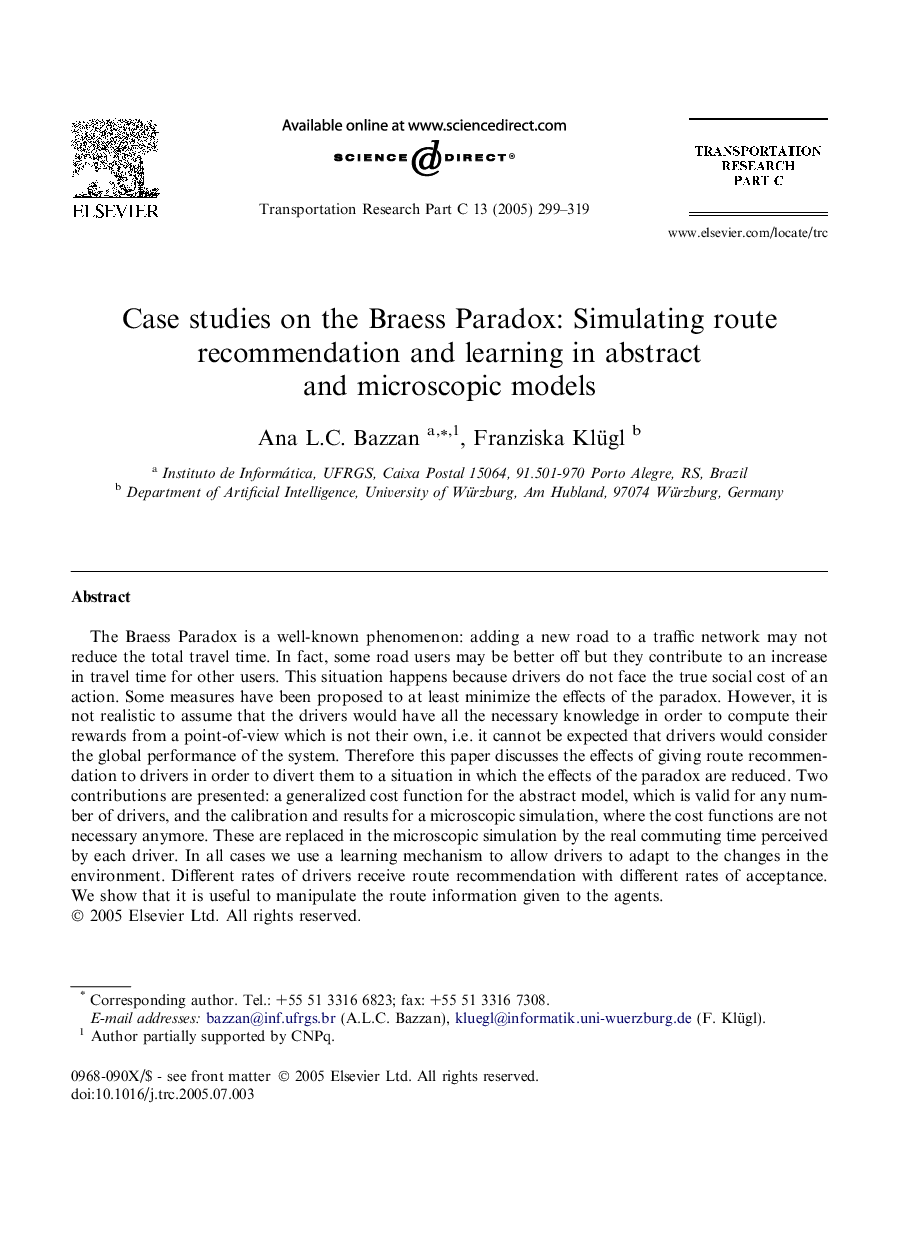| Article ID | Journal | Published Year | Pages | File Type |
|---|---|---|---|---|
| 10359121 | Transportation Research Part C: Emerging Technologies | 2005 | 21 Pages |
Abstract
The Braess Paradox is a well-known phenomenon: adding a new road to a traffic network may not reduce the total travel time. In fact, some road users may be better off but they contribute to an increase in travel time for other users. This situation happens because drivers do not face the true social cost of an action. Some measures have been proposed to at least minimize the effects of the paradox. However, it is not realistic to assume that the drivers would have all the necessary knowledge in order to compute their rewards from a point-of-view which is not their own, i.e. it cannot be expected that drivers would consider the global performance of the system. Therefore this paper discusses the effects of giving route recommendation to drivers in order to divert them to a situation in which the effects of the paradox are reduced. Two contributions are presented: a generalized cost function for the abstract model, which is valid for any number of drivers, and the calibration and results for a microscopic simulation, where the cost functions are not necessary anymore. These are replaced in the microscopic simulation by the real commuting time perceived by each driver. In all cases we use a learning mechanism to allow drivers to adapt to the changes in the environment. Different rates of drivers receive route recommendation with different rates of acceptance. We show that it is useful to manipulate the route information given to the agents.
Related Topics
Physical Sciences and Engineering
Computer Science
Computer Science Applications
Authors
Ana L.C. Bazzan, Franziska Klügl,
